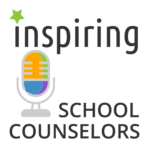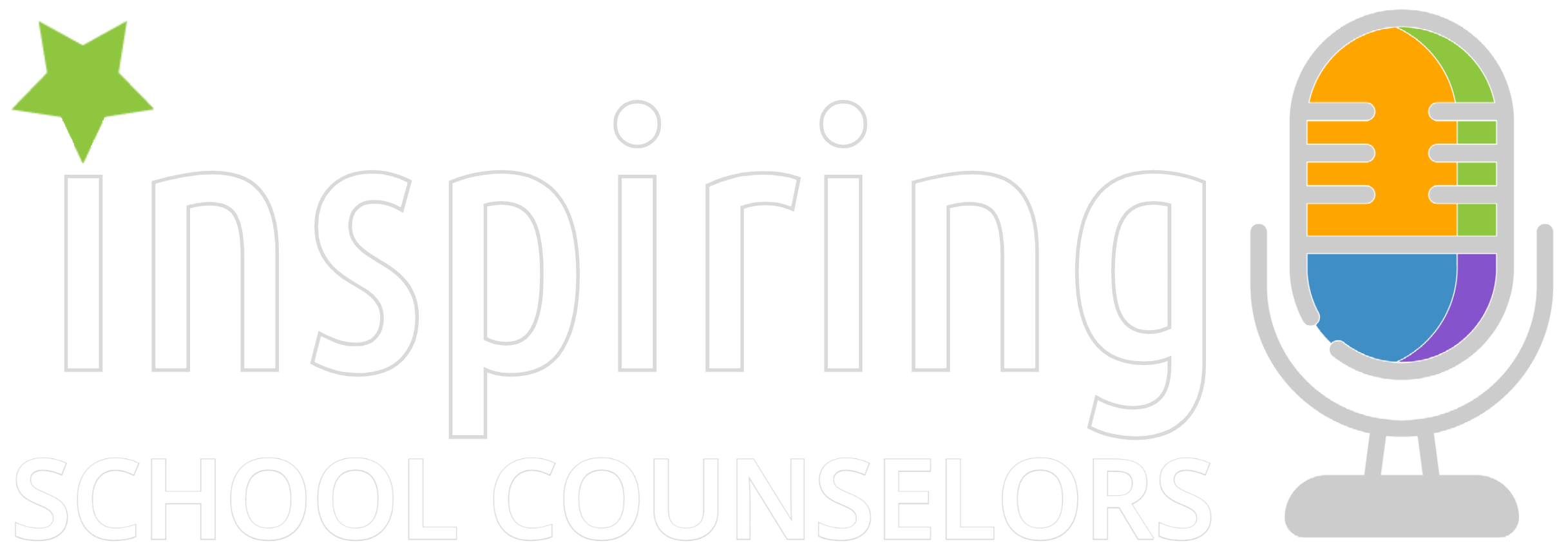
View this post on InstagramA post shared by Lezya Weglarz ? (@positivelyschoolcounseling) on
Resources Mentioned in this Episode
Lezya Weglarz’s 2019 presentation to the American School Counselor Association: Strengthening School-Family Partnerships with Latino Families
Transcript
Matt Fleck:
Hello! Welcome to another week of Encouraging Words For School Counselors. I’m Matt Fleck from Inspire Success, your fall tour guide for stories from school counselors about school counseling.
Today we’re celebrating National Hispanic Heritage Month, which runs from September 15th to October 15th, national Hispanic heritage month honors, both the Hispanic and Latino American cultures. Noob that I am, I didn’t exactly realize that Hispanic refers specifically to a person of Spanish speaking origin or ancestry, so it might exclude individuals from Brazil, for example. Latino and Latina refer to a person born in a Latin American country or of Latin American ancestry. And that Latinx is the gender neutral alternative to Latino.
The reason I know this is because of our guest Lezya Weglarz, who’s the school counselor at the San Marcos Unified School District in California. Lezya is Latina herself and both of her parents were immigrants. She says, it’s easy to forget that Latino families and parents in general, maybe struggling with virtual learning as our students are.
Lezya Weglarz:
You know, right now — especially with the pandemic — so much of our learning is virtually. We have like online registration and we forget that for so many of our families, they’ve never, maybe even had an email. They don’t know how to scan documents or those kinds of things. And you know, when you look at your job from your perspective, it could be frustrating if people don’t know how to navigate these things, how to upload, how to scan, how to, you know, do all those things. And I joke though, because every time my mom wants to order something online, she calls me and says, “Hey, can you order this for me online?” So I can’t imagine if my mom was raising me right now and she says as much she says, I don’t know what I would do right now. That’s the lens that I approach my work to like, okay, this is like my mom asking me for help. Like, you know, sometimes we expect parents to be monitoring grades, but they’re just, they’re not there. They just, they need some hand holding to get to that part.
Matt:
Lezya is Board Director of the California Association Of School Counselors and gave a presentation at ASCA last year on parent involvement, especially with Latino families and the differences between how the term “parent involvement” is interpreted across different cultures.
Lezya:
You know, oftentimes we hear from educators, they’re not showing up to our parent workshops, they’re not involved. And when you talk to Latino families, [they say] yes, we’re involved. We asked them how they’re doing and we try to, you know, have those conversations and we educate them. But in Spanish, the word “educación” has more broad connotations of, like, teaching good manners and being a good person, not necessarily just academics. It’s more all encompassing of raising a well-rounded individual, which I think is really interesting. I think if there’s some benefits of the pandemic, like the bright side is, I think, that we have become more well-versed in diverse ways of getting information out to our families that are beyond “come to our school and we’ll tell you about it.” And so hopefully there are some good things that are coming out of the challenges that we’re facing right now,
Matt:
Working with her students, Lezya has found that sometimes the smallest of gestures, or what we might think of as a small thing, can have a big impact on our students.
Lezya:
I think it’s important as a school counselor to get creative on how we support our students and reach them. So, one thing that I do actually, as a school counselor, is I like to write student’s notes and I especially like to write them notes when they’re disengaged from school. Oftentimes it’s because they don’t feel a connection or they don’t feel that their presence really matters. Right? That anyone notices that they’re not there.
So, I have a student that was chronically absent from school, but I made it a point to every morning check to see if he was at his first period class. And then instead of sending him a pass to come see me, I decided I just sent him a note and I would say, I’m so glad you’re here today. I hope we have a great day. Just something like that. And for some days he would come regularly, but then when he’d go a stretch of not coming to school, I decided to do a home visit.
You know, I personally think there’s power in doing home visits for students, not from a place of, “you’re in trouble,” but from a place of, “I care about you and I noticed that you weren’t there and I just want to make sure you’re okay.”
When I got to the house, you know, it’s sad. I went into his bedroom and it doesn’t really look like a kid’s bedroom. It’s, you know, not a lot of the luxuries that my son would have in his bedroom. It was trash and nothing very warm about it. But I looked over to the side and on his coffee table was the note I had written to him that said, “I’m so glad that you came to school.” And for me, I was so moved. Of course I kept it together, but at that moment I realized that the little things that we do, oftentimes you don’t know how it’s going to be received on the other end, if it’s really going to have an impact or, you know, if he just crumpled it and pass it in the trash. But at that moment, I realized that these little acts of kindness, these little acts of “I see you and I care about you,” can really have a huge impact on our students. Maybe that was the only nice thing he heard that day. I don’t know. But I think as counselors, we’re in such a great position to make those connections with our students. It took me five seconds to write that note, but to see it there, I hope that I made a difference and, and hopefully little seeds were planted in his educational career.
Matt:
Thanks to Lezya for her story and her work, not only with students, but with the school counseling associations in California. By the way, we have a link to the slides from Lezya’s ASCA presentation last year on strengthening school-family partnerships with Latino families. I personally think it’s a fantastic quick reference guide for working with Latino families and with students. You can find it on our website at inspiresuccess.org/podcast.
Well, that’s all from us. Please tell your friends about the podcast. They could use a little cheer in their weeks as well, don’t you think? Don’t we all?
And please, please, please let us know your humorous or touching story of working with students. Just drop me a super short note to matt@inspiresuccess.org. And ten una maravillosa semana! Have a wonderful week! (I think I butchered that.)
